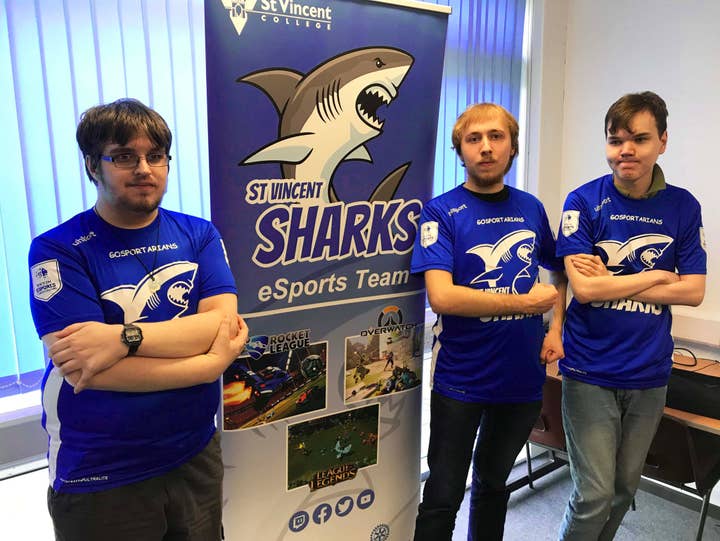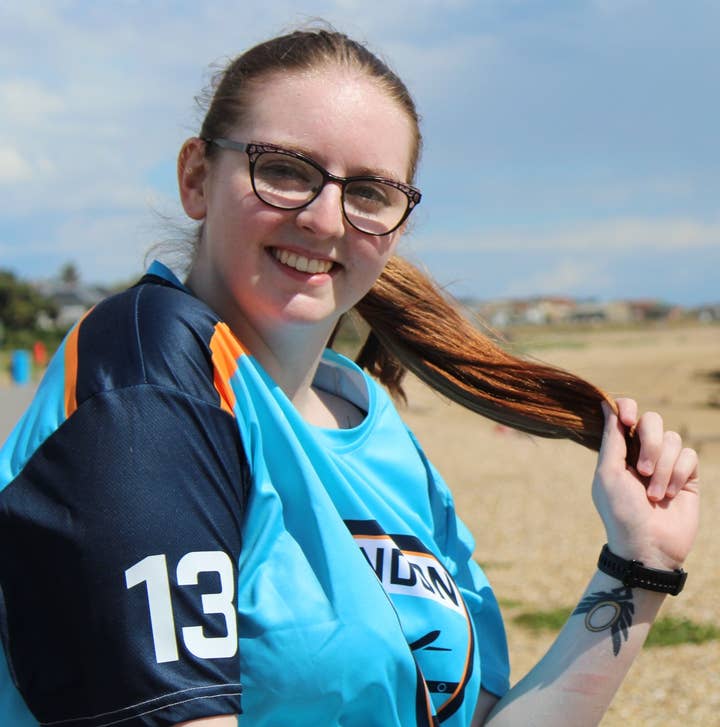What accessible gaming tournaments could mean for players with disabilities
Esports teams and players discuss the barriers that need to lower to open competitive gaming to all
"Therapy got me into video games. I needed to build up my foot eye co-ordination, that way I could learn to write with my feet. Coincidentally, the small motor movements that you need to write are the same you need for video games, and because video games are extremely fun, that appealed to a small child who needed to learn how to write."
These are the words of Tucker Griggs. At 23, he's already in the top 5% of Overwatch players in the world, despite playing the game entirely with his feet.
People like Griggs -- esports players with disabilities -- have very few places to show off their skills, and so fewer tournaments actively encourage them to enrol in the competitive scene, due in part to a lack of explicit accommodation to their needs. Welcoming players with disabilities into esports is one thing, but tournaments and organisations need to actively support them on every level to even see them in the first place.
"There should be regulation put in place for esports to support the disabled community in both the regular esports league and any new disabled esports leagues"
Tucker Griggs, Overwatch esports player
There are some notable exceptions however. Capcom Pro Tour, the official tournament for Street Fighter, has rules for this year that state: "Capcom USA will not limit cosmetic or functional controller customizations providing fairness is maintained. Additionally, we recognize certain customizations may be required so that players with physical impairments can compete."
This clear-cut acceptance that has encouragement towards all players baked into the rules is not an industry-wide statute. This is part of what people like Griggs are calling for, that this type of allocation to players with disabilities extends to more of the industry.
Recently there have been esports tournaments, both in the works and actively available, for players with disabilities. The Adaptive Esports League was recently announced, which has custom rules and guidelines tailored to players with disabilities, and the British Esports Association (BEA) made it public not long ago that they are in talks for a tournament in the same vein. Both want to cater specifically to players with disabilities in the hope that they can give them a platform for competitive play, and to show the rest of the esports industry how they can be integrated into the sport.
BEA junior content executive Bryony-Hope Green says: "We want to break the stigma around disabled people in esports, and with this tournament that we're hoping to bring, it would just show that not all disabled people need accessible equipment and different things to be able to game and compete."
The BEA wants to put esports players with disabilities in the mainstream spotlight, and present the video games industry with a platform they can look to for inspiration and guidance on how their own rules can become more accessible, whilst still keeping them fair for everyone.

One team that gives such players a platform, alongside peers without disabilities, is the St Vincent Sharks. This team is made up of students from the St Vincent College in Gosport, Hampshire, and it has a mixture of students without disabilities and those with Special Educational Needs (SEN). They compete in Rocket League tournaments that are held at the college level in the UK.
"For [my SEN students] to enter a tournament which is competitive and against other students that have disabilities would mean the world," says Martin Birch-Foster, the team's coach and the school's IT and Media Teacher. "They really want to get into a competitive scene."
"I don't think how you play the game should have any bearing on where you can play"
Max Spooner, eTeam BRIT
The St Vincent Sharks perfectly exemplify, albeit on a much smaller scale, that esports players with disabilities both can and want to play alongside everyone else.
The Sharks were born out of a single donation of an Xbox 360 to Birch-Foster's SEN class. After the SEN students showed an interest, more consoles and games were donated and soon students from St Vincent's sixth-form were staring in through the window, desperately wanting to play. The school had set up internal lunchtime tournaments, which birthed a fully-fledged esports team, who play matches online and stream the footage to Twitch.
Birch-Foster says: "I've called the team my Breakfast Club, because none of them knew each other prior to joining the team. They were all on separate courses, they had no idea who each other was, but now they're heroes in the college. A lot of the college watch all our matches and whenever anyone's walking past them when they're wearing their shirts, they get a cheer."
Not only has the St Vincent Sharks given competitive sporting opportunities to SEN students, but it has also given students both with and without disabilities alike a space to bond and understand each other. Martin made sure that when he invited the sixth-form students in that they were split up, playing with and against SEN students.
He says: "The Sharks played their first match in February 2020. We made it a massive event, so we invited the entire college to the auditorium. I learned how to stream online and from there the whole school came in and watched."
The St Vincent Sharks were victorious.
Another concern from esports players with disabilities is that tournaments catered only to them could be isolating. Whilst tournaments that aim to celebrate and showcase their talent are undoubtedly a good thing for the industry, a lot of players with disabilities don't want this to mean they're simply "boxed in" to competitions specifically for them.
This is what Griggs believes, as his disability involuntarily requires he uses a mouse and keyboard with his feet. He has Arthrogryposis Multiplex Congenita (AMC), meaning the joints in his arms and knees are fixed, greatly limiting his movement. So from a young age he had physical therapy.
Griggs doesn't need specialist equipment thanks to his determination from a young age, but he understands that this isn't the case for everyone, so he sees a need for industry-wide classification.
He says: "There should be regulation put in place for esports to support the disabled community in both the regular esports league and any new disabled esports leagues. That way, when players make the jump they can have the same equipment and support going into their new venture.
"It's a tough line to balance, giving enough support to disabled esports without hindering the disabled in esports."

Many people are calling support from the top to welcome more players with disabilities into esports. Max Spooner is the manager of eTeam BRIT, a virtual endurance racing team that engages in simulation racing with others online. eTeam BRIT is composed entirely of racers and staff with disabilities, and the funding they receive allows them to create customisable driving rigs.
Spooner says: "If it wasn't for our sponsors, I wouldn't be in a position to be able to do the things I do, we wouldn't have the funds to do it. It doesn't need to be cash, it can be providing us with equipment to develop a virtual driver so they can adapt better. Whatever it may be if someone feels they can help, talk to us.
"I don't think how you play the game should have any bearing on where you can play."
This support has gone a long way, as it helped eTeam BRIT get their first piece of silverware after they became the Bronze Champion of the Sim Racers World BMW Trophy. They came first in the third highest bracket.
James Hall is an eTeam BRIT driver, and his fibromyalgia means he has chronic pain and fatigue syndrome, so he can't easily access traditional racing.
He says: "We do the endurance racing to not only level the playing field between disabled drivers and able-bodied drivers, but to tell them we can play too."
Hall welcomes the challenge, and he wants to see more companies with the funding and resources support esports as a whole because of what it means for themselves, not just the players.
"Regarding sponsors, they're not buying into the team itself, they're buying into the story behind the team."
Esports players with disabilities want to be on a level playing field with players without them. In some competitions they already are, but they want this relationship to extend all the way up to the top, as it means more and more players can join esports at its highest level.
However, this can't happen if there aren't eyes on esports players with disabilities. That is where the upcoming Adaptive Esports League and the tournament in the works at the BEA come in, as not only will they give these players a chance to compete with each other, but they can be the doorway into showing the esports industry that they want to play. They also want to win.







